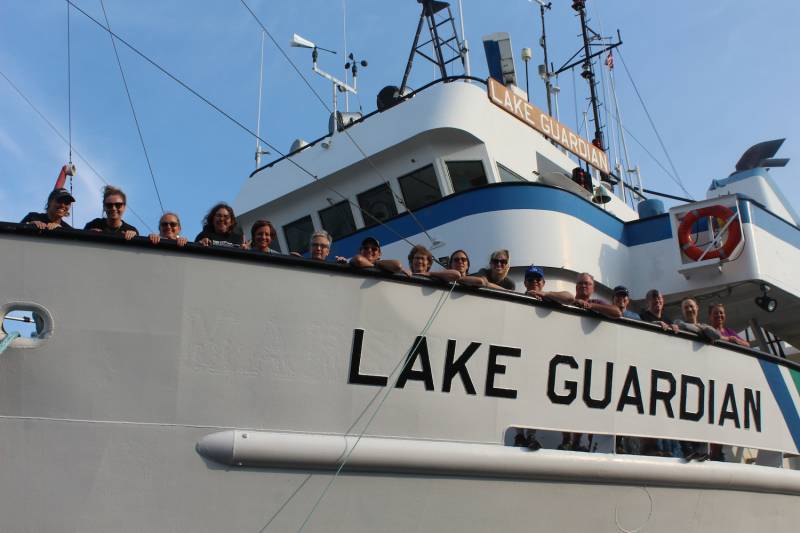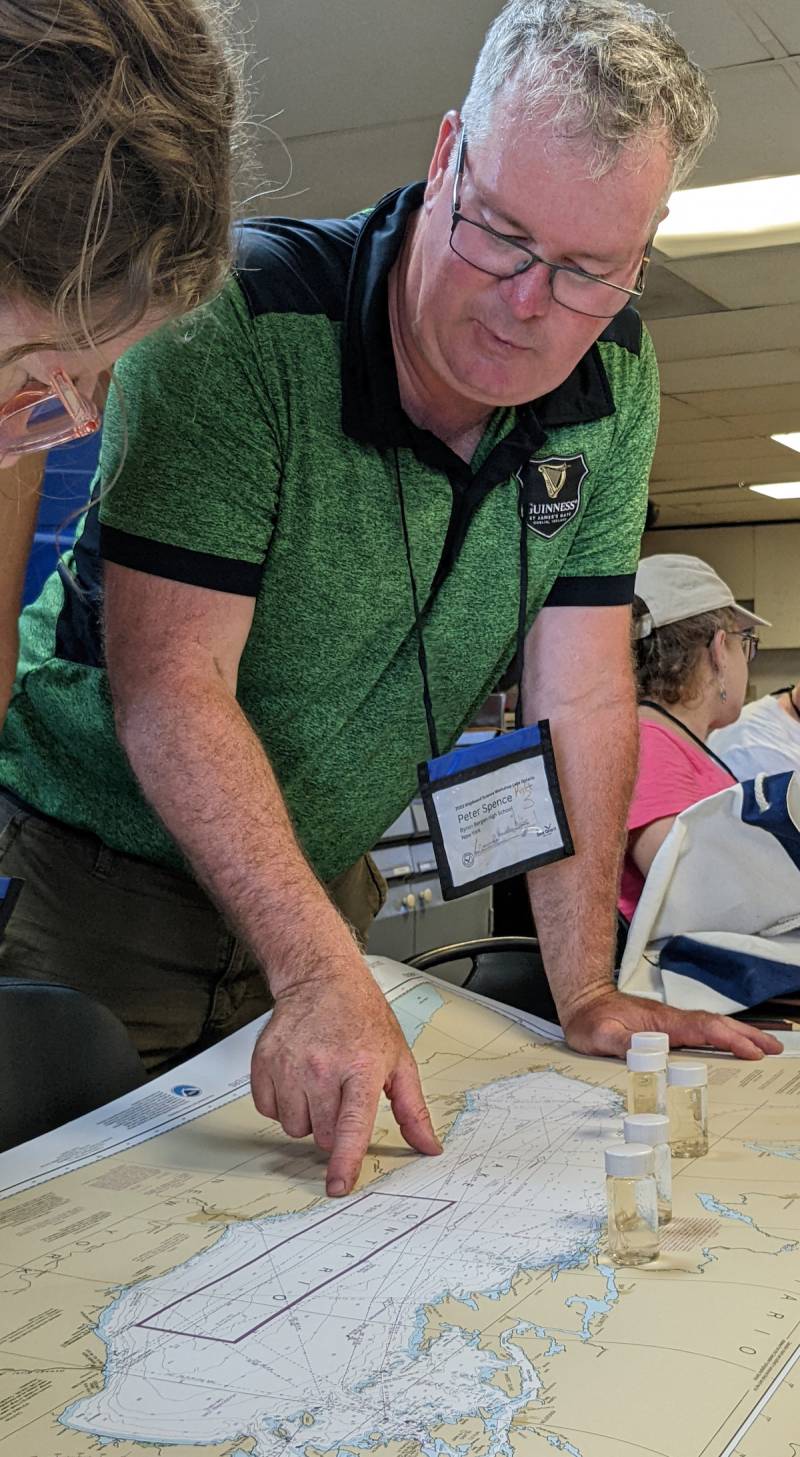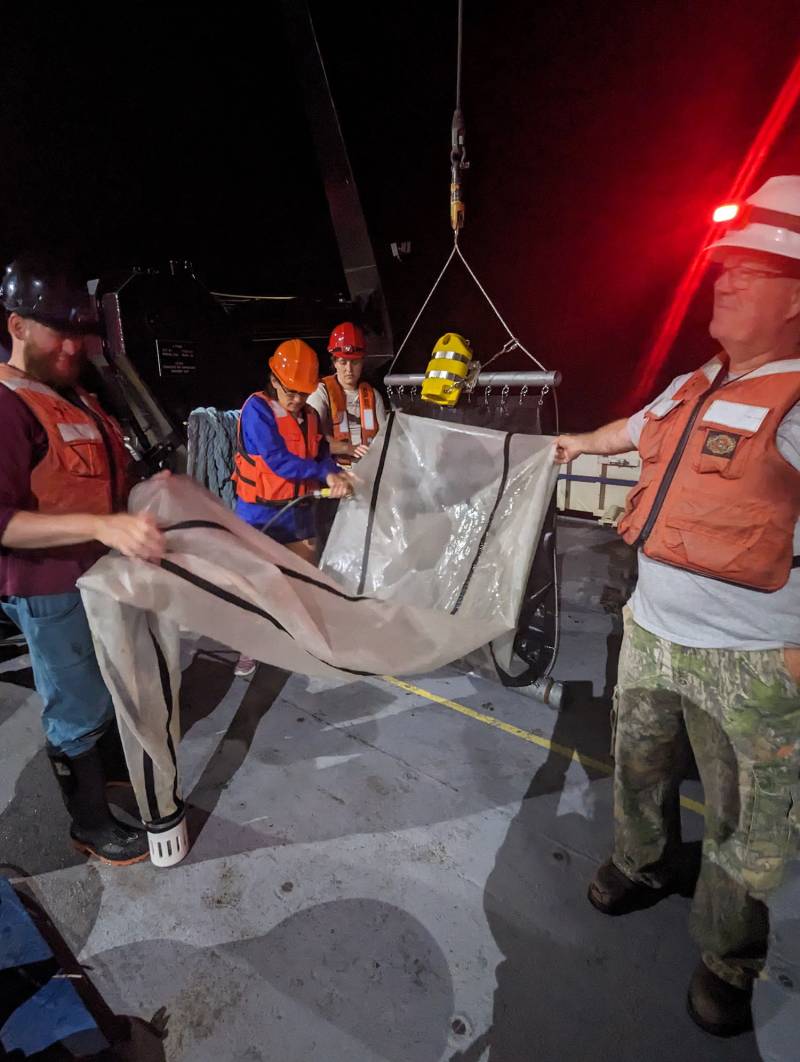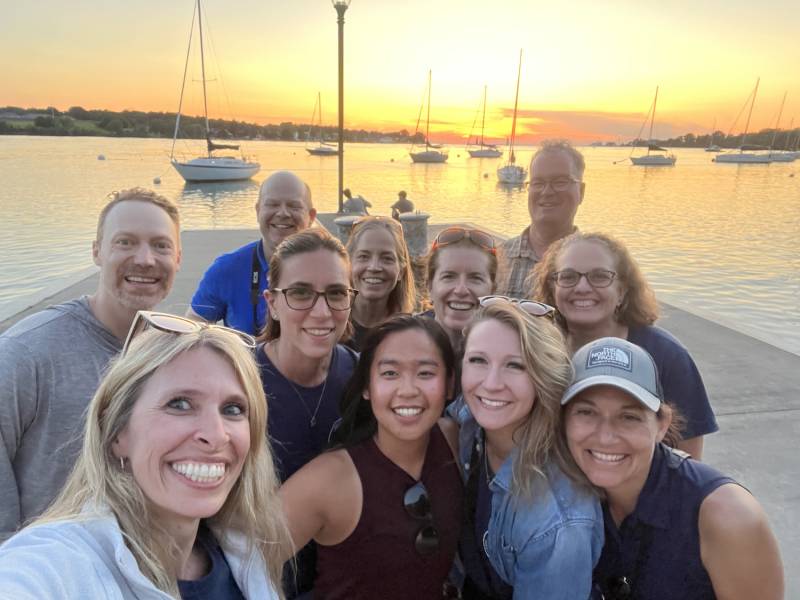
Pete Spence is 5th from right.
Press Release:
On July 6, Byron-Bergen Secondary Science Teacher Pete Spence boarded the U.S. EPA Lake Guardian for a seven-day voyage to conduct research on Lake Ontario. Spence was one of 15 participating teachers taking part in the annual expedition which collected data in several locations looking at algae, zooplankton, and benthic organisms.
“I was interested in doing research on the Great Lakes, so I applied and was accepted,” said Spence. He requested and was assigned to the team examining differences in zooplankton populations from the east to the west end of the lake. “We also used acoustic (sonar) techniques to locate migratory shrimp species that stay on the bottom of the lake during the day and move toward the surface at night.”
Spence also assisted in research teams collecting blue-green algae levels at depths up to 40 meters and quagga mussel populations from 60 to 120 meters deep. The Lake Guardian docked in Youngstown and the participants toured the Niagara Falls gorge, an experience which many of the out-of-state teachers had never had. They then set out to collect a series of samples starting from the Welland Canal and crossing the lake to Toronto.
During one memorable experiment, the crew submerged Styrofoam cups in one of the deepest parts of Lake Ontario to observe how pressure impacts volume. The water pressure compressed them to approximately half of their original size. “I plan to have my students write their names on Styrofoam cups which I will send to the EPA for this experiment,” said Spence. “After they have been submerged in Lake Superior and returned to us, the students can measure the changes.”
Seven days after setting out on Lake Ontario, the crew disembarked at Port Rochester on July 12. “One of the things that I’m bringing back to Byron-Bergen is using the Great Lakes in my Environmental AP class,” said Spence. “The Great Lakes have always been of interest to me, being that we live so near them, I think it’s a great opportunity for students to see the bigger picture.”



